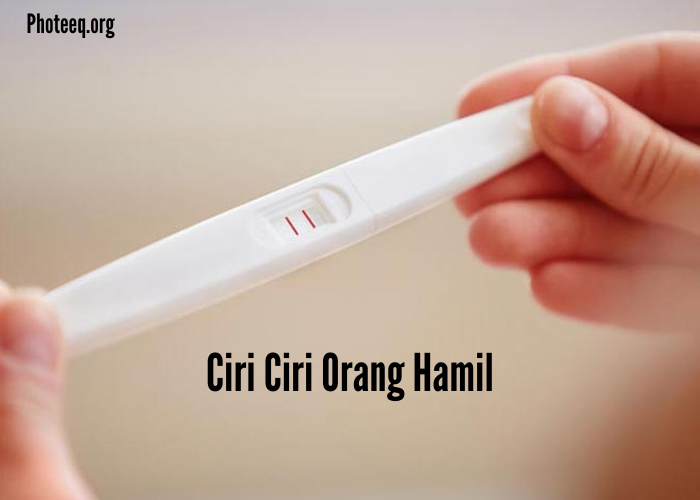Pregnancy is a miraculous journey that brings joy and anticipation to the lives of many. While it is a natural process, it comes with a wide range of physical and emotional changes that can be both exciting and challenging. In Bahasa Indonesia, the signs and symptoms of pregnancy are often referred to as Ciri Ciri Orang Hamil. In this comprehensive guide, we will explore the various ciri ciri orang hamil to help you better understand this remarkable phase of life. Whether you are an expectant mother, a partner, or someone curious about pregnancy, this article will provide valuable insights into the unique experiences of pregnancy.
Missed Period
One of the most common and unmistakable signs of pregnancy is a missed menstrual period. For many women, a regular menstrual cycle is a reliable indicator of their overall health. When a period is missed, it can be a strong indication of pregnancy. However, it’s essential to note that some factors other than pregnancy, such as stress or hormonal imbalances, can also lead to missed periods.
Breast Changes
Pregnancy often brings significant changes to the breasts. As early as two weeks after conception, you may notice tenderness, swelling, and soreness in your breasts. The areolas (the darker skin around the nipples) may also darken, and you might observe prominent veins. These changes occur due to hormonal fluctuations preparing your body for breastfeeding.
Frequent Urination
An increase in the frequency of urination is a common early sign of pregnancy. This symptom is primarily attributed to hormonal changes, particularly the hormone human chorionic gonadotropin (hCG), which increases blood flow to the pelvic area and kidneys. As a result, you may find yourself making more trips to the bathroom, especially during the night.
Fatigue
Fatigue is another prevalent symptom during the early stages of pregnancy. This profound tiredness can be attributed to the increased production of the hormone progesterone, which has a calming effect on the body and can lead to drowsiness. Moreover, your body is working hard to support the growing fetus, causing you to feel more tired than usual.
Morning Sickness
Morning sickness, characterized by nausea and vomiting, is a classic pregnancy symptom that often starts around the sixth week of pregnancy. Contrary to its name, it can occur at any time of the day. While the exact cause of morning sickness is not entirely understood, hormonal changes, increased sensitivity to smells, and stress are thought to contribute to it.
Changes in Food Aversions and Cravings
Many pregnant women experience changes in their food preferences during pregnancy. You might suddenly crave foods you never enjoyed before, or certain odors may become repulsive. These changes are often linked to hormonal fluctuations and can vary widely from one woman to another.
Mood Swings
Hormonal fluctuations during pregnancy can also lead to mood swings. You may find yourself experiencing a range of emotions, from joy and excitement to anxiety and irritability. These mood swings are entirely normal and can be managed through self-care and support from loved ones.
Sensitivity to Smells
Pregnant women often report heightened sensitivity to odors. Everyday scents that were once tolerable may suddenly become overpowering or unpleasant. This heightened sense of smell is believed to be related to hormonal changes and may contribute to morning sickness.
Bloating and Constipation
Hormonal changes can slow down the digestive system during pregnancy, leading to bloating and constipation. Increased levels of the hormone progesterone relax the muscles of the digestive tract, causing food to move more slowly through the intestines. This can result in discomfort and irregular bowel movements.
Visible Changes in the Abdomen
As the pregnancy progresses, you will notice visible changes in your abdomen. Your uterus will gradually expand to accommodate the growing fetus. Typically, a noticeable baby bump becomes apparent in the second trimester. This is an exciting milestone for expectant mothers, as it signifies the development of the baby.
Braxton Hicks Contractions
In the later stages of pregnancy, you may experience Braxton Hicks contractions. These are sporadic, painless contractions that serve as a kind of practice for the uterine muscles. While they are usually harmless, they can be mistaken for labor contractions by first time mothers.
Fetal Movement
Feeling your baby’s movements, known as quickening, is one of the most cherished moments of pregnancy. Typically, this occurs between the 18th and 25th weeks. Initially, the movements are subtle flutters, but they gradually become more pronounced as the pregnancy advances.
Backache and Pelvic Pain
The physical strain of carrying a growing baby can lead to backaches and pelvic pain. Hormonal changes and the shifting of your body’s center of gravity can contribute to discomfort in the lower back and pelvic region. Proper posture and gentle exercises can help alleviate these symptoms.
Swelling and Fluid Retention
Edema, or swelling of the feet, ankles, and hands, is a common occurrence in the later stages of pregnancy. This is due to an increase in blood volume and the pressure on blood vessels caused by the expanding uterus. While some swelling is normal, excessive or sudden swelling should be reported to a healthcare provider.
Stretch Marks
As your belly expands to accommodate your growing baby, you may notice the appearance of stretch marks on your skin. These pink or purple streaks are a result of the skin stretching rapidly. While they may fade over time, they are a permanent reminder of the incredible journey of pregnancy.
Conclusion
Pregnancy is a remarkable and transformative experience for women and their families. The ciri-ciri orang hamil, or signs and symptoms of pregnancy, provide valuable insights into the changes that occur during this journey. While each pregnancy is unique, understanding these signs can help expectant mothers navigate the physical and emotional challenges that come with carrying a child. It’s essential to remember that pregnancy is a natural process, and seeking prenatal care and support from healthcare professionals is crucial for a healthy and positive pregnancy experience. Embrace the journey, cherish the moments, and prepare for the beautiful addition to your family that awaits.





